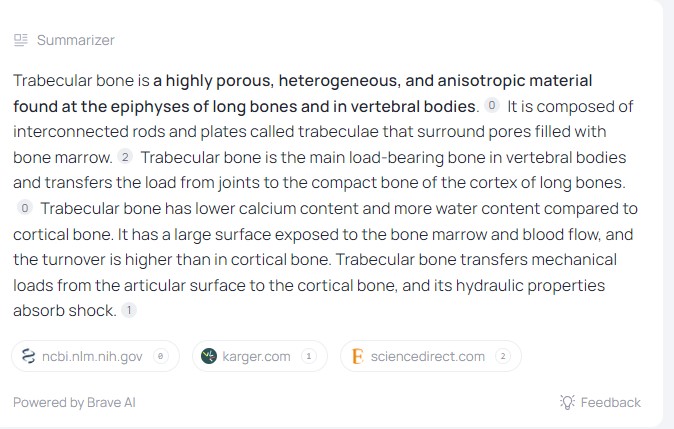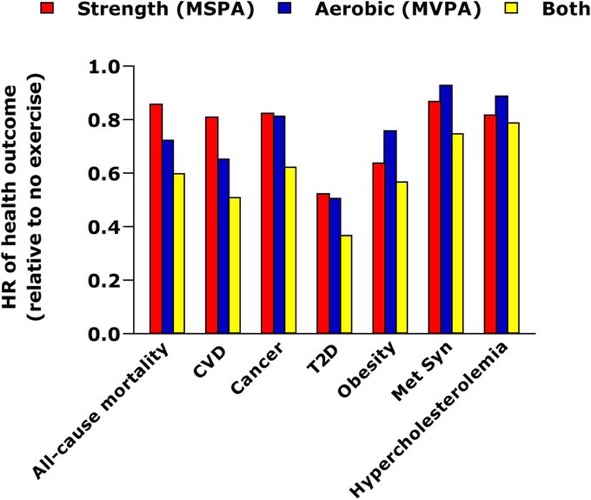I would like to know the answer to this also. No amount of resistance or aerobic exercise prevents this. It may slow it down a little. I think the answer to this question is key. If we could prevent this it would make a world of difference.
There are two separate big problems. One is the difficulty in building muscle (sarcopenia), the second is the weakening of bones (osteoporosis). There are also balance and cognition issues.
Osteoporosis occurs because osteoblasts fail to be created whereas osteoclasts continue to be created. Hence the bones are broken down by osteoclasts as normal, but not rebuilt by the osteoblasts. This is a differentiation issue.
With muscle cells they stop producing certain proteins.
Both of these are gene expression issues.
I’ve read on multiple occasions that life style will get you to 90 , but good genes are the key to getting to 100+. The article you posted said pretty much the same.
I’m hoping that intervening with rapamycin will get us over the hump regardless of our genes. I don’t think that lifestyle interventions will do it.
But the choices you make in life are also highly influenced by genetics.
Ah, the old: Do we have free will or not?
Regarding bone health and exercise, I think I have a real-world example of the relationship.
I recently had a conversation with a UCSD bone person. We discussed the results of a DXA scan I had a couple of months ago.
One of the findings was the following:

Whereas my bone mineral density T-score (results relative to a 20yo female) for spine is -2.8, and hips -1.8, trabecular bone score is ‘only’ -0.6.
What is trabecular bone?

I think the last sentence is key. While I might meet the criteria for an osteoporosis diagnosis (not great), the internal structures (trabecula) are in far better shape than one might guess (highly discordant). This I put down to humping a 10-12kg backpack around the neighborhood for training, and the thousands of miles I hike in the preceding decade and a half. Had I not been doing this, I’d be in a far riskier situation w/r/t to falls and whatnot.
Anyway, now I think I understand what a reference to ‘bone quality’ actually means.
Pretty soon, we’ll probably have ways to stop muscle loss in old folks. But honestly, I think it’ll be tougher to clean out the arteries after years of chowing down on a diet full of animal protein and loads of unsaturated fats.
Muscle loss and loss of balance are serious issues. A good friend of mine passed away last Sunday because he fell and hit his head. While he was in the hospital having surgery he contracted COVID and that finished him off. He was in his 80s. He was very active and vibrant until the day of his accident.
If he hadn’t lost his balance, he’d still be alive for probably many years.
I was diagnosed with osteoporosis over 20 years ago, I’ve never broken a bone and I’ve had some falls that one would figure would result in a fracture. A couple of months ago I stupidly jumped off the top of a 4 foot wall. I tweaked my left knee but I got better in about 3 weeks. I could really have gotten hurt. But the point is I am suspect of the DEXA test, at least for some like myself.
Lots of people in this thread talking about genetics. This study finds that “the true heritability of human longevity for birth cohorts across the 1800s and early 1900s was well below 10%” - which indicates that environment is a much more significant factor, and the choices you make in food and exercise, among other things, will have a larger influence on your longevity than will genetics.
Actually, a treatment is right around the corner. It’s just going into clinical trials in the UK.
I’ve been tracking this company for a while. Crossing fingers for positive results. It will be a game changer for millions of people.
Yes - Cyclarity Therapeutics is very interesting. The company is being incubated at the Buck Institute.
A good podcast with the founder is here:
Haven’t listened to this, thanks. I’ll check it out. I’ve been keeping an eye on them. I hope they can keep their independence and resist getting bought up by a larger pharmaceutical company. It feels like it’s such a potential groundbreaking treatment that they could be bought out to bury the tech. A one and done treatment would most likely hurt a lot of bottom lines, but maybe I’m just too cynical.
“…the largest health benefits, including an approximately 40% reduced risk of all-cause mortality and 50% reduced risk of CVD mortality, are observed among individuals who perform sufficient amounts of both MVPA (150 min of moderate- to vigorous-intensity aerobic physical activity) and MSPA (muscle-strengthening physical activity on ≥2 d·wk)”
Do resistance training and endurance training to get the full benefits of exercise.

Seems like a lot of attention these days on zone 2 training. Would you consider that “moderate”?
I can’t speak to the study’s definition but I interpret as follows (5 zone model):
Easy — zone 0 (below zone 1) … walking pace. All day pace for a fit person.
Moderate — zone 1.5-2.0 (just able to talk in sentences while exercising but if you were on the phone, the other person would be able to tell you were exercising). A for person could go on at this pace for many hours.
Vigorous — zone 3.5-4.0 …as hard as you could go for an hour (45-90 minutes); breathing hard but regularly…not gasping.
Very Hard — zone 5… as hard as you could go for 5 minutes or less; ragged breathing.
Exercise isn’t for everybody.
As I have mentioned many times in Rapamycin News threads. I believe in exercise and have been personally active most of my life. I still go to the gym at least three times a week, and I think it has a significant effect on healthspan.
However, by observation or reading, I don’t find much evidence that exercise extends lifespan.
Exercise mainly contributes to lifespan by helping people maintain a healthy BMI.
A healthy BMI shows up in centenarian studies much more often than exercise.
There are many examples of Olympic-caliber athletes skiing or running marathons at 90.
However, not everyone benefits equally from exercise. I know several people my age who are in better physical shape than me and who have never done much exercise. They eat in moderation with no special diets and maintain a healthy BMI. Lucky genes?
Some people, like me, are born with very overly pronated ankles, and my years of jogging and playing tennis exacerbated the problem. Some people are born with spinal curvature problems.
They also might not benefit from running, playing tennis, etc.
My choice of exercise, which can exercise most body muscles without damaging them, is swimming. The athletic club I belong to has heated indoor exercise pools with classes full of older members who otherwise would find most traditional gym exercises too painful.
If you can’t do that, there is always Yoga. Most larger cities have yoga classes.
“Yoga and Health Benefits
Yoga is known for its holistic approach to physical, mental, and emotional well-being, which may contribute to longevity:
Physical Health: Regular yoga practice improves flexibility, strength, cardiovascular health, and immune function.
Mental Health: Yoga reduces stress, anxiety, and depression, potentially lowering the risk of stress-related diseases.
Lifestyle Impact: Yoga often encourages a healthier lifestyle, including mindful eating, reduced substance use, and better sleep.”
My theory is: Maintaining a healthy BMI throughout life is more important than the amount of exercise you get.
Okay, beat me up! ![]()
One of the reasons why I think Asians live so long is that they are incredibly skinny. Wherever I go, it’s hard to find an overweight person (Maybe 1 in 20?). I’d say the reverse is true when I go home to the USA, where it’s hard to find a skinny person. Why are they so fit? They walk a lot. An average person gets at least 5,000 steps a day in addition to any sports or physical activities they may do.
Many men my age play soccer or basketball with their friends as their social outlet as their tiger wives want them to set a good example for the children. And they need a good reason to get out of the house. ![]()
Am starting to suspect this also
Why choose? It’s like arguing about whether water or food is more important. Keep visceral fat very low and move your body a lot in many different ways that are enjoyable.